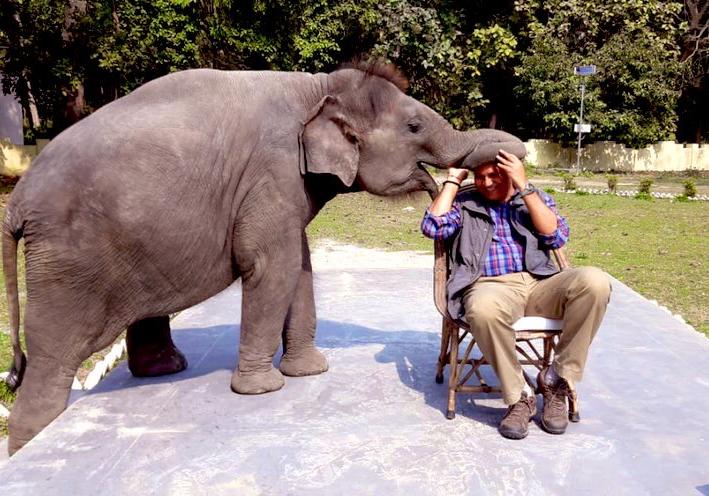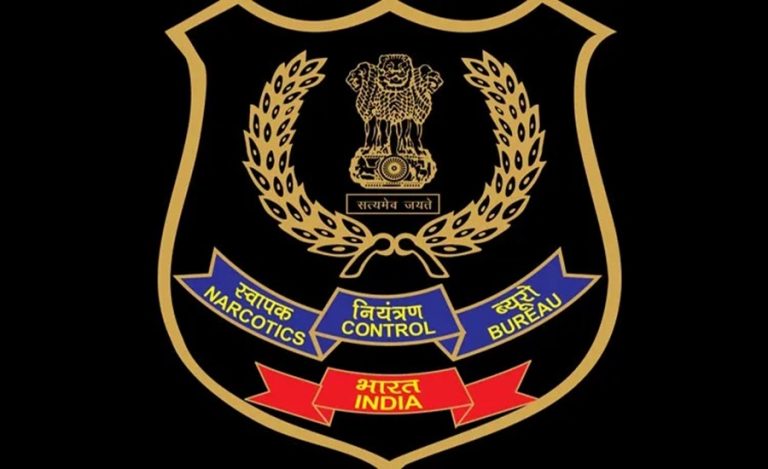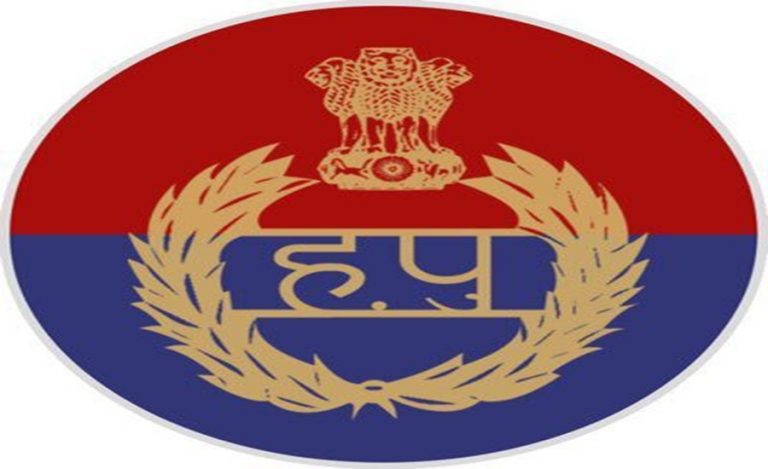The roar of the tiger is back in the forests of Uttar Pradesh. Going beyond Dudhwa, the prime tiger reserve of the state for last many decades, two other places in UP have emerged as favorite tiger reserves for tourists, photographers and wildlife buffs. These are Katarniaghat and Pilibhit reserves.

But what may not be known to many, it’s the senior officer of the Indian Forest Service (IFS), Mr Ramesh Pandey who has been instrumental in making Pilibhit and Katarniaghat tiger-friendly. Speaking with Indian Masterminds, he recalled his struggles to achieve this feat, which involved not just ensuring proper habitats for these two places but also breaking the back of organized poaching which led to the perilous state of affairs for tigers and other wildlife in Uttar Pradesh.
Work on Pilibhit Tiger Reserve
Just seven years old, Pilibhit’s Tiger Reserve is one of the youngest tiger reserves in India. However, the foundation work for it was laid in 2002-03 by Mr. Pandey and his team. He recalled, “For an area to be considered as protected reserve, certain parameters are required. Like the number of tigers, the ecosystem, habitation etc. When I went there, no officer or staff was exposed much to wildlife. The census of wildlife was also not done for many years. Our team started working on it. Camera traps were used and we located 17 tigers. We submitted a report stating that the area had a great potential to become a tiger reserve.”

Thanks to Mr Pandey’s efforts, Pilibhit has emerged as one of the best tigers reserves in Northern India and recently got an international recognition in this regard.
For the Tigers of Katarniaghat
Katarniaghat is a part of Dudhwa National Park, in the Lakhempur Kheri division of Uttar Pradesh. But here the wildlife in general, and tiger in particular, suffered due to heavy poaching. Most of the culprits allegedly belonged to the Bawaria community. Not just killing of wildlife, illegal felling of trees was rampant in Katarniaghat when Mr Pandey took charge of the place.
Such was the scare of Bawaria poachers that no officer wanted a posting in Katarniaghat. Mr. Pandey was hand-picked for the job and sent here. Straightaway the IFS offier launched Operation Trishul in Katarniaghat, arrested over 250 people and busted several gangs involved in timber smuggling. During this time, he raided the house of a city block Pramukh and caught seven trucks of timber worth crores of rupees.

However, all this had consequence for Mr Pandey and he faced tough time in Katarniaghat. The criminals got behind him. Various protests were organized against him but he didn’t budge.
The anti-poaching measures by Mr Pandey produced excellent results. Katarniaghat, which had become devoid of tigers, now had 30 big cats! All this happened between 2005 and 2008. His exemplary work was mentioned in the Parliament too and the then Rajya Sabha MP Mr Chandan Mitra made special reference about it in the Upper House.
Mr Pandey’s work also led to the formation of ‘Wildlife Crime Control Bureau’. He himself served in the bureau as the head of its Northern region.
Remembering his stint in Katarniaghat, Mr Pandey says, “During that period, tigers had vanished from Sariska sanctuary (in Rajasthan). The protection of tiger had become a much debated topic. The resurrection of tigers Katarniaghat showed what all can be done to bring the tiger back into a forest. It became a example for the country.’’

Mr Pandey insisted that a tiger is a great survivor and has a potential to bounce back from the brink of extinction. But for that to happen, one has to ensure good habitat which is free of poaching and any kind of deforestation.
Mr. Pandey also served as conservator in Saharanpur and Chief Conservator & Field Director in Dudhwa.
He is one who started the use of M- Stripes (Monitoring System for Tigers- Protection & Ecological status) in Dudhwa for patrolling & Surveillance of tigers.
Combating Wildlife Crimes
Some two decades ago Mr. Pandey got his first wildlife posting in Kashi Wildlife Division, Chanduali. The area is situated next to the Sasaram district of Bihar, where an attempt was made to introduce Asian lions there. He remained there for one and half years and during this time nabbed several notorious posters. He revived the composition amount (a fine recovered from the arrested poachers) and hiked it to 7,20,000 rupees from a mere Rs 25,000.
Talking about this, Mr Pandey said, “Under IPC we have different sections for murder, attempt of murder and homicides, whereas no such sections exist in the Wildlife laws. In Kashi, I hiked the amount is the highest amount till know because after the incident an amendment in Wildlife Protection Act came and the upper limit to fine was set to not more 25,000 rupees”.

For this act, Mr. Pandey and his team were awarded by World Wildlife Fund (WWF), PATA award.
Mr. Pandey’s work for the wildlife protection has been remarkable. As the Director of Delhi Zoo, where he is currently posted, he has managed to increase the number of species from 83 to 93 and also the number of total animals- which now stand at an impressive 1105
A 1996 batch officer, Mr Pandey got selected for the forest service in his second attempt at UPSC. Two attempts were left for him but he was content with he got- because actually this what he desired in the first place.
He had a great affection for nature since his college days, which made him choose Plant Sciences for the Master’s Degree and Environmental Science for his post-graduate diploma. When Mr Pandey got into forest service, he took it as a golden opportunity to work for the protection of wildlife and forests.
Suffice to say, the results which this dedicated forest officer achieved in the field matched his passion.


















